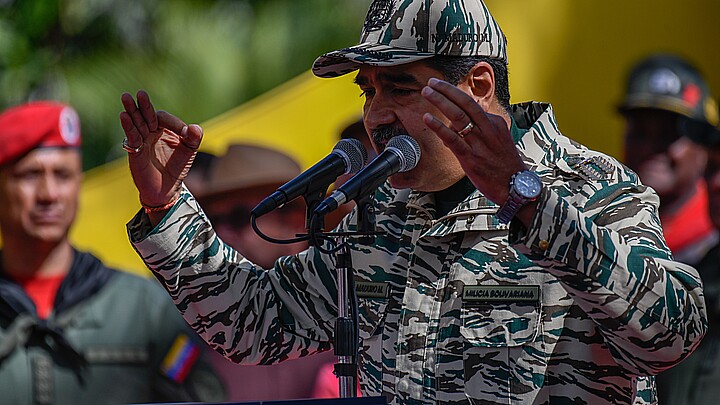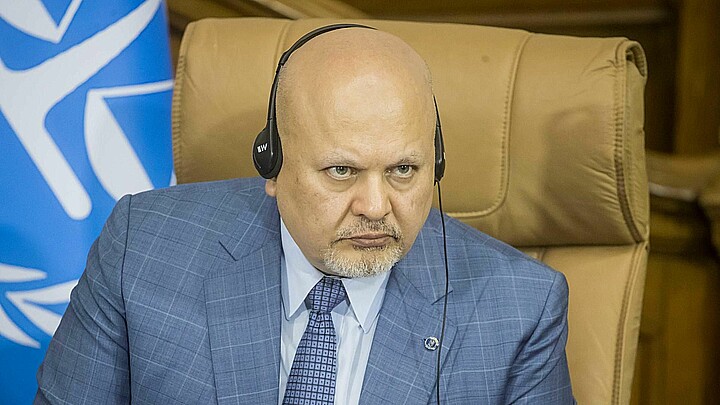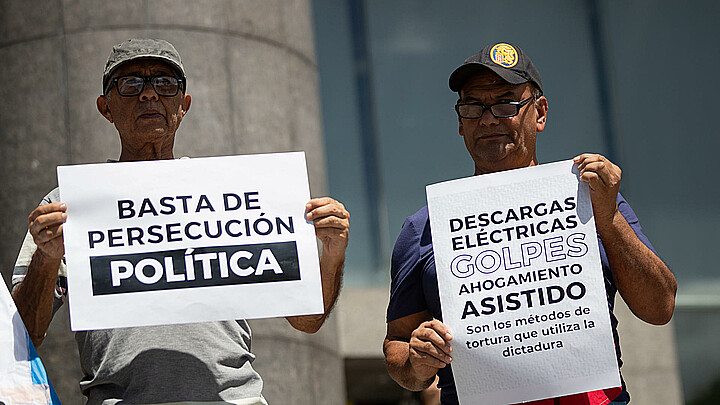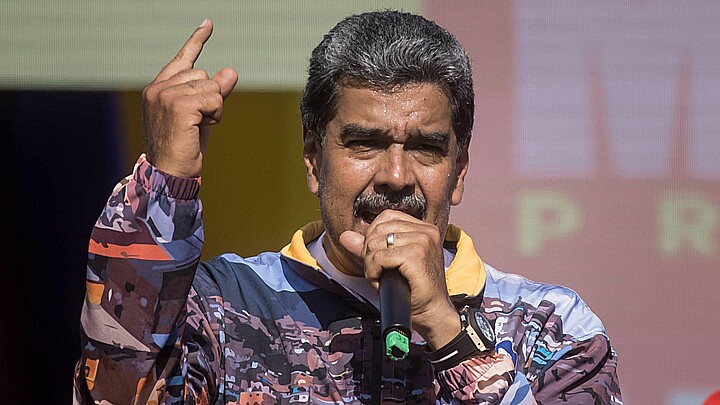Human Rights
U.S. urges the Maduro to guarantee human rights of political prisoners and female inmates
Foro Penal, a prisoners rights NGO, reports there are 1,849 political prisoners in the framework of the regime’s brutal repression after the July 28 presidential elections

December 26, 2024 3:23pm
Updated: December 27, 2024 10:00am
The U.S. Embassy for Venezuela urged Nicolás Maduro’s Chavista regime this Thursday to guarantee the human rights of women detained for political issues.
“According to Venezuelan NGOs, hundreds of women remain detained in Venezuela for political reasons, many of them facing inhumane conditions, separated from their children and families,” the embassy wrote on its official X account.
“The authorities and systems must guarantee adequate medical care and respect for their dignity,” he added. “We call on the justice system to address this situation and guarantee the rights of detained women.”
Foro Penal, a prisoners rights NGO said the prisoners are becoming overcrowded with political prisoners.
Foro Penal Director Alfredo Romero said, “this is Christmas in Venezuela with the largest number of political prisoners, at least in this century.”
De acuerdo a oenegés venezolanas, cientos de mujeres permanecen detenidas en Venezuela por razones políticas, muchas de ellas enfrentando condiciones inhumanas, separadas de sus hijos y familias.
— Embajada de los EE.UU., Venezuela (@usembassyve) December 26, 2024
Las autoridades y sistemas deben garantizarles atención médica adecuada y respeto a… pic.twitter.com/Wvm23ncTgN
The organization's latest report indicates that there are 1,849 political prisoners in the framework of the brutal repression unleashed by the regime after the presidential elections of July 28, among them 221 are women.
In mid-November, the Maduro regime released more than 100 political prisoners who protested against the electoral fraud of July 28 in Venezuela.
Foro Penal announced at that time that about 50 young adults were released from the Aragua prison, known as Tocorón, as well as another group from the La Crisálida Training Center for Female Detainees, in Los Teques inside the Miranda state, but did not specifying the number in this case.
Balance de #PresosPoliticos en Venezuela al 23/12/2024 por 𝗙𝗼𝗿𝗼 𝗣𝗲𝗻𝗮𝗹:
— Foro Penal (@ForoPenal) December 26, 2024
Hemos registrado y calificado el mayor número de presos con fines políticos conocido en #Venezuela, al menos en el Siglo XXI. Seguimos recibiendo y registrando detenidos.
𝗧𝗼𝘁𝗮𝗹 𝗽𝗿𝗲𝘀𝗼𝘀… pic.twitter.com/8NiXwYkIz2
In October, reported that women inside the correctional institution were infected with lice and suffered from urinary tract infections because poor plumbing prevented them from being able to maintain their hygiene.
“Everything inside is inhumane,” a relative of one of the women said, according to a report published by Media Monitoring.
According to a press release published by the Venezuelan Observatory of Prisons (OVP) NGO, the institution has crowded as much as 15 to 18 women in each cell, which only contains two water pipes for bathing and washing clothes.
The conditions are so bad that the NGO reports that women can only clean their bodies with wet towels and they have to take turns washing their hair on different day. Sharing some of the towels has contributed to the spread of lice infections, reports said.
The Committee for the Freedom of Political Prisoners had also reported that a group of 36 people were released from the Carabobo prison, known as Tocuyito, as well as about 19 from the Yare prison, in Miranda.
These releases occurred after the death of Jesús Manuel Martínez Medina in the state of Anzoátegui, who died on November 14 while in the custody of the Bolivarian National Intelligence Service (SEBIN).
Martínez served as a “table witness” in the state of Aragua in the wake of the July 28 presidential elections. He was arrested on the night of July 29 at his home by SEBIN agents without a search warrant and without legal justification.
After his death was confirmed, Chavista Attorney General Tarek William Saab announced that the Venezuelan Prosecutor's Office had requested the review of hundreds of cases of opponents detained after the protests after the July 28 elections.











